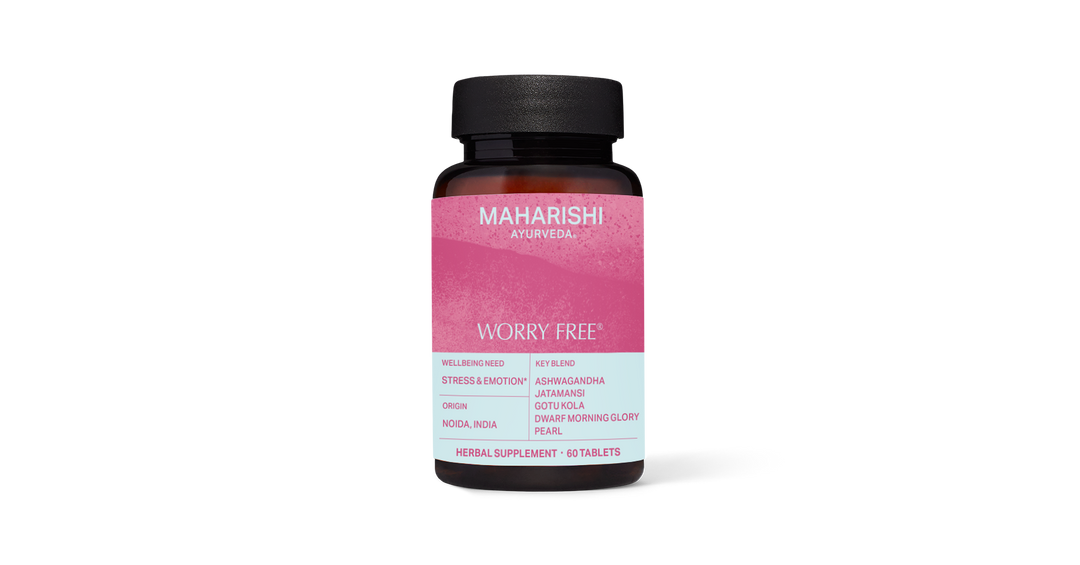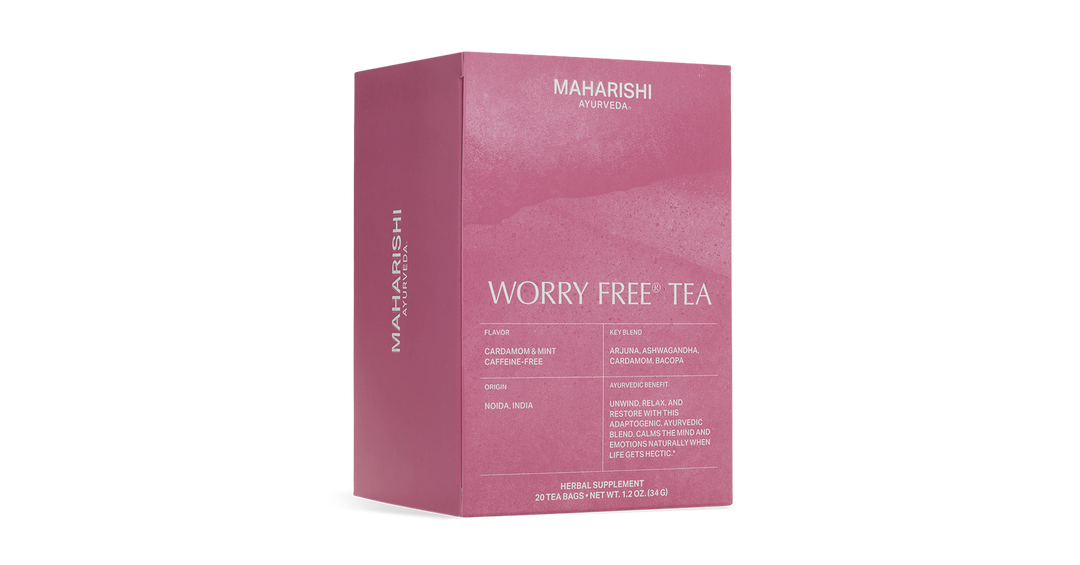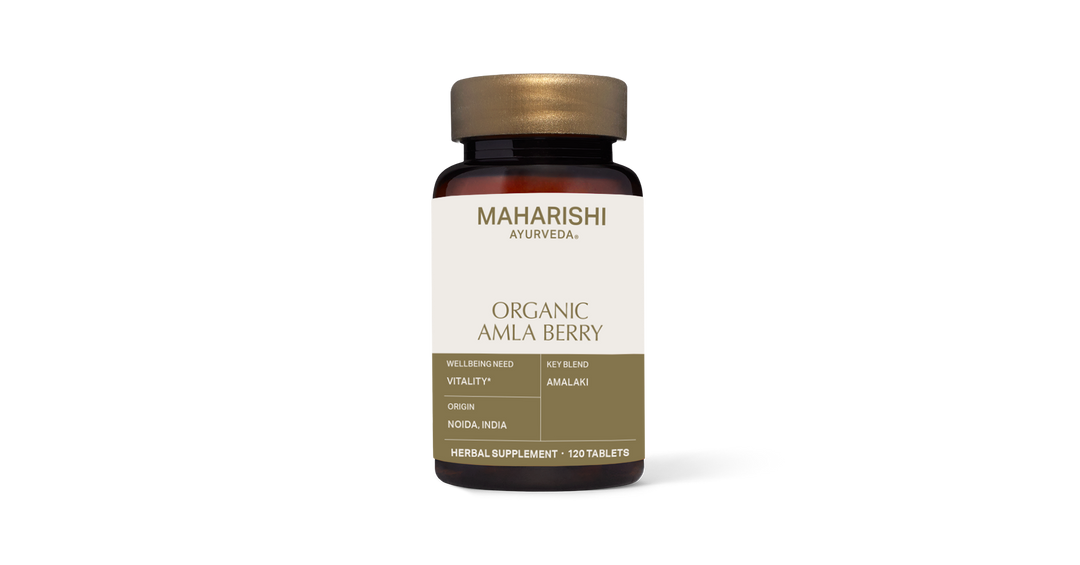We experience the world and our surroundings through our senses: sight, taste, smell, hearing, and touch. But in an age of endless scrolling, streaming, and around-the-clock podcasts, your eyes and ears can sometimes feel overloaded. This, in turn, can tax your nervous system, leading to issues with sleep, focus, and more.
It’s helpful to keep moderation in mind with screen time and media consumption—although that can be a challenge if you work online all day. Whatever your daily activities, this Q&A with MAPI’s in-house Ayurvedic experts offers simple strategies for supporting the health of your eyes and ears naturally.
Ayurveda and Eyesight
Question: How can I keep my eyes and vision healthy in this day and age?
Answer: Over time, a person’s eyesight can deteriorate due to overuse, strain, lack of rest, and a lack of dietary nutrients such as beta carotene—a carotenoid that nourishes the eyes and which naturally occurs in produce like carrots, winter squash, cantaloupe, and spinach. To avoid eye issues, it can be helpful to consume beta carotene-rich foods, get enough rest, and take regular breaks when reading or working on the computer.
Pitta Dosha and the Eyes
In Ayurveda, vision is understood to be governed primarily by Alochaka Pitta—the subdosha of Pitta responsible for the functioning of the eyes. To balance Alochaka Pitta, it’s helpful to balance the liver (Ranjaka Pitta) and the emotions, or sense of emotional contentment (Sadhaka Pitta).
Kapha Dosha and the Eyes
Another important doshic influence on vision: the neuro humors (Tarpaka Kapha). This subdosha of Kapha helps maintain moisture in the eyes, nose, mouth, and brain. Thus, Tarpaka Kapha helps to maintain balanced vision by cooling the eyes (Alochaka Pitta) and lubricating sensory perception (Prana Vata).
If Tarpaka Kapha is weak, it's due to a lack of lubrication. This disrupts the other two factors—Alochaka Pitta and Prana Vata. Just as your car needs oil and water to prevent overheating and drying out, Tarpaka Kapha regulates moisture in the eyes.
Diet and Lifestyle Tips
- Take Organic Premium Amla Berry herbal formula.
- Eat lots of well-cooked green veggies and carrots.
- Add more sweet juicy fruits to your diet.
- Cook with turmeric, cumin, coriander and fenugreek.
- Follow a regular routine, including early to bed and rise.
Ayurvedic Eye Exercises
You can also try the following Ayurvedic eye exercises from the Charaka Samhita text:
Light Touch
Close your eyes and place your fingers over them. Gently caress the eyelids as you move the fingers across the lids in an outward direction. Do this for 1 to 2 minutes before getting out of bed in the morning.
Eye Rinse
With the eyes closed, gently rinse with water. The temperature of the water should be a bit lower than room temperature. At the same time you are rinsing your eyes, hold some of the water in your mouth. This helps maintain balance between the eyes (Alochaka Pitta) and the area surrounding the eyes (Tarpaka Kapha).
The water in your mouth will quickly warm up. When it does, spit it out and take a fresh mouthful. The optimum is to continue rinsing the eyes until you've taken 10 mouthfuls of water. It takes less than 10 minutes. You can do it daily.
Ayurveda and the Ears
Question: How can I support my ear health as I age?
Answer: To promote healthy ears and hearing, it’s beneficial to avoid listening to music, podcasts, and other media at a high volume. Also, as the sense of hearing is associated with Vata dosha, it can be beneficial to try some of these Vata-balancing tips:
Diet and Lifestyle Tips
- Give yourself a daily oil massage (abhyanga); focus on the head.
- Take Worry Free tablets and the Worry Free Tea.
- Add poppy seed chutney to your diet — with a blend of 80 percent poppy seeds and 20 percent shredded coconut. Heat the dry poppy seeds just until they begin to pop. Next, add water and blend the seeds thoroughly into a paste. Then, mix in the coconut. Heat a bit of cumin in the ghee (clarified butter), add salt to taste, and mix with the poppy-coconut paste.
For more helpful tips, read “Zoomed Out: How to Create Balance in the Age of Screens.”
© 1999, 2024 Maharishi AyurVeda Products International, Inc. (MAPI). All Rights Reserved. MAPI does not provide medical advice, diagnosis or treatment. These statements have not been evaluated by the Food and Drug Administration. Products are not intended to diagnose, treat, cure or prevent any disease. See additional information.





